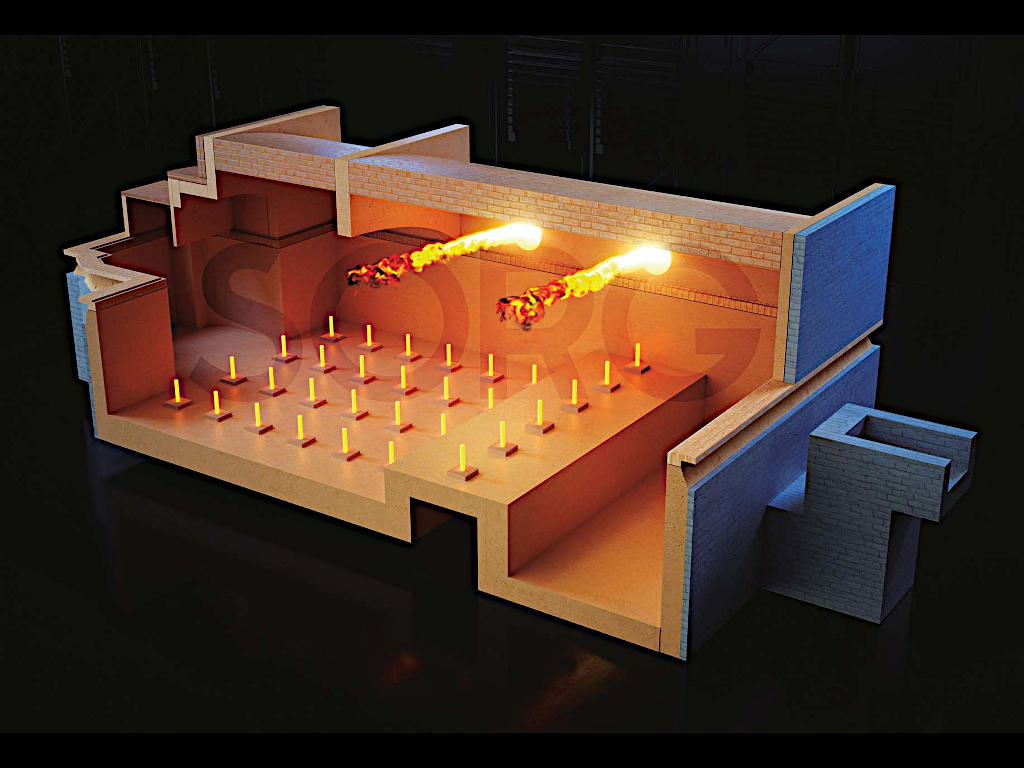The glass industry is facing a critical moment. To make glass production more sustainable, we must shift to renewable energy sources and sustainable processes. This will ensure that glass is a leading environmentally-friendly material for the future.
Glass is 100% recyclable, but the energy required to make it and the emissions produced create a challenge to manufacturers. To stay competitive and grow economically, it’s crucial for the glass industry to comply with stricter air pollution and carbon emission regulations. The Paris Climate Accord mandates a 60% reduction in carbon emissions by 2030 and carbon neutrality by 2050. Combustion technology must transform from a main energy source into a supporting booster.
Alternative fuels such as hydrogen, syngas, ammonia and biodiesel are being explored for sustainable energy, but they currently lack the power and stability needed to maintain consistent furnace temperatures for producing high-quality glass.
All-electric and boosting solutions
Fifty years ago, SORG introduced the all-electric VSM furnace and has since installed and refurbished more than 100 of them. Besides that, SORG has provided powerful electric boosters for more than 500 fossil-fired furnaces across the globe. We are committed to tackling climate change by investing in cleaner technologies and constantly striving to increase productivity while lowering emissions.
Cold-top all-electric melting has some limitations: for example, the melting of heavy foaming glasses and limited variations in raw materials such as cullet share and glass chemistry. It has also been limited to a maximum achievable pull rate of 200mt/d to date, although we are working on new all-electric concepts to increase the pull rate and to ensure that all-electric furnaces are a viable alternative for glass plants with larger furnaces.
In most parts of the world, electricity is more expensive than natural gas, making it uneconomical for standard glass production. In those regions, [glass] customers gladly rely on the advanced technology of SORG’s highly energy-efficient combustion heated end-fired furnaces, with or without electrical boosting as well as cullet or batch pre-heating, which consume less than half of the energy similar furnaces consumed 50 years ago.
Combining the best of both technologies
It’s why we’re proud that SORG has combined the best of both technologies and taken orders for its ground-breaking CLEAN Melter hybrid furnace.
After five years of research and development by our in-house team, we have met market demand for a hybrid furnace that offers future-proofed flexibility in its choice of energy source, supporting larger applications and pull rates and overcoming the previously mentioned limitations like melting strongly foaming glasses. The CLEAN Melter is a product of our practical experience in furnace design and the physical and mathematical modelling of SORG’s in-house experts. Utilising a combination of electric and fuel combustion heating, the CLEAN Melter can allocate from 20 up to 80% of its power to (renewable) electric energy, while relying for the remaining share on fossil combustion. The remaining share of fossil combustion can be realised, using air/gas or oxygen/gas firing, and it’s also possible to replace gas with green hydrogen, biogas or syngas for zero carbon emissions.
By using these methods, energy consumption and carbon emissions can be significantly reduced. Additionally, the CLEAN Melter offers increased flexibility regarding variations in pull and raw materials, such as cullet share and glass chemistry. All these benefits are achieved without any negative impact on the quality of the glass produced.
The furnace’s refining shelf stabilises the melting process by separating the chaotic high-speed melting part from the calm homogenising refiner part. With decades of refining shelf experience, SORG knows that without it, the required quality of glass is difficult to achieve.
Glass manufacturers stand to benefit from our hard work and expertise in developing lower-emission and cost-saving furnaces that outlast traditional melters while providing the best option in a period of changing markets in terms of prices for gas, electricity, CO2-shares and alternative energy sources. The SORG team is excited to spearhead change in the industry, ensuring its future and that of the planet.
The right time, the right partner
At SORG, we possess unparalleled expertise in electric, combustive and hybrid melting. Our goal is to promote sustainability in the glass industry, and we have the necessary technology and tools to make our vision a reality.
Our three companies operate under a ‘Power of Three’ philosophy to provide a wide range of products and services. We have dedicated teams that specialise in electric, combustive and hybrid melting, and we assist customers throughout the entire process, including the supply and storage of raw materials, cullet return systems, glass melting and conditioning, asset, services, maintenance and after-sales support. Our customised sustainable solutions are designed to offer the lowest possible total cost of ownership.
We have designed and are supplying the CLEAN Melter to deliver a more sustainable way of melting glass. It was our response to market demand for a furnace that enhances sustainability and efficiency while reliably producing high-quality glass. The SORG thinking behind this revolutionary hybrid concept is simple and based on proven technical know-how and manufacturing expertise. The focus was to preserve the future of glass manufacturing and our planet.
CLEAN Melter and VSM are registered trademarks of Nikolaus SORG GmbH & Co. KG
Image: SORG’s CLEAN Melter hybrid furnace can allocate 20–80% of its power to (renewable) electric energy.


